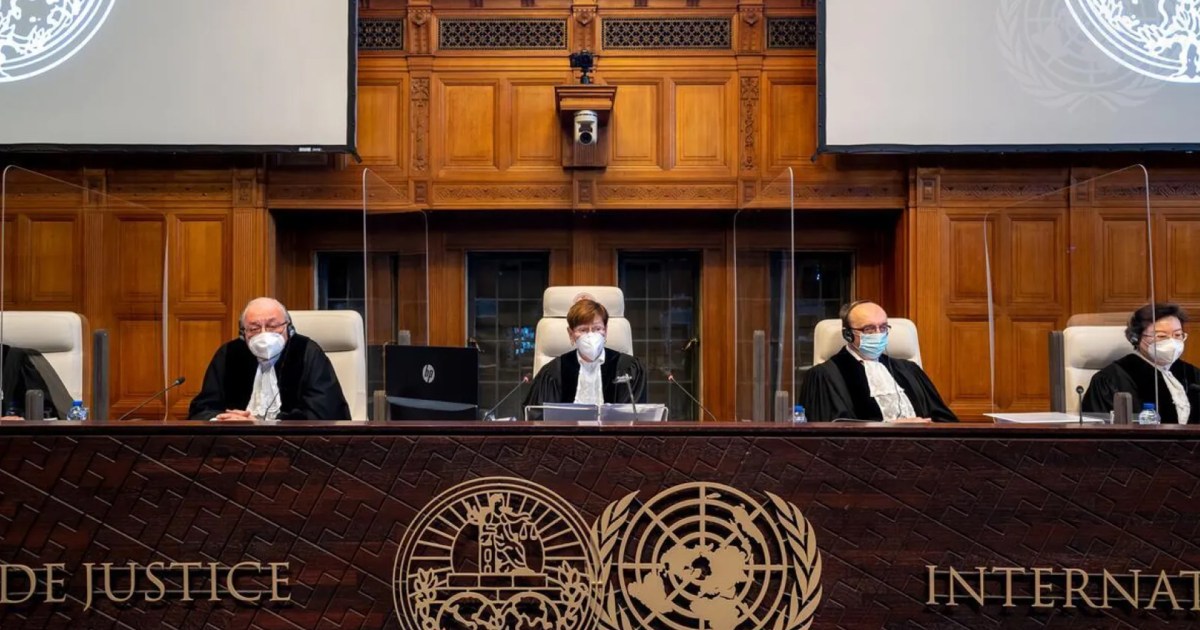An article
in Foreign Affairs
described the Russian invasion of Ukraine as "the most brazen illegal war" that a sovereign country has waged against another since World War II.
According to the article's author, Una Ann Hathaway - an American lawyer and professor of international law at Yale University School of Law - the Kremlin's launch of the invasion was a clear violation of the basic obligation contained in the United Nations Charter that prohibits "the use or use of force against the territorial integrity or political independence of any state." ".
She pointed out that Russian President Vladimir Putin had recently threatened the Ukrainians that if they continued the resistance, they would jeopardize the future of the Ukrainian state.
Unusual breach of law
The writer stated that a torrent of real-time evidence from Ukraine confirms that the Russian army is committing war crimes throughout the country, as well as targeting civilians, adding that these "extraordinary and lawless acts" were met with equally extraordinary acts of law enforcement.
She added that the most widely discussed reaction to the widely discussed "blatantly illegal war" was the unprecedented deluge of coordinated sanctions imposed by the United States, Europe and most of the world against Russia.
According to the writer, these sanctions were applied specifically and directly in response to Russia's violation of the Charter of the United Nations, with the result that it sent a message that the invasion of Ukraine poses a threat not only to Ukraine but to the international legal system as well.
Moreover, by joining these sanctions, the countries of the world clearly express that they, too, reject the "illegal" Russian invasion and the violation it represents.
Denying the benefits of international cooperation
In her article, Hathaway points out that contemporary international law requires states to respond to violations, not with war, but with sanctions that deprive any state that violates the law from reaping the fruits of international cooperation.
The writer adds that in this case, the ban or exclusion does not include economic sanctions alone, but also prohibits Russian athletes from participating in international sporting events, prevents Russian planes from flying over European and American airspace, and blocks Russian media in European Union countries.
But this is not all. International legal institutions, which are usually in a state of inactivity - in the opinion of a professor of international law - suddenly came to life again following the "illegal" Russian invasion. The Prosecutor of the International Criminal Court, Karim Khan, announced a few days after the invasion. He will conduct an investigation into possible Russian war crimes and crimes against humanity.
Ukraine, in turn, asked the International Criminal Court to intervene in the conflict.
There are growing demands for a special court to consider whether it was a crime of aggression.
Unprecedented global reaction
Although it is too soon to know whether these attempts will be successful, the unprecedented reactions may have the unexpected effect of reviving and strengthening the international legal system to which Putin has not been reckoned.
In the words of Hathaway, the conflict is not only about the future of Ukraine, it is about the future of the international legal system as we know it as well.
The writer touched on the attempts of the UN Security Council to pass a resolution condemning the Russian invasion and calling for the withdrawal of Russian forces from Ukraine, but Moscow aborted it by using its veto.
According to the article, the wheel of justice began to turn quickly.
On February 28, the Public Prosecutor of the Criminal Court, Karim Khan, announced that he was seeking authorization to open an investigation as soon as possible.
Although both Russia and Ukraine are not parties to the Rome Statute under which the International Criminal Court was established, Karim Khan stated that he would expedite the investigation if a member state referred the Ukraine crisis file to his office.
Hathaway says that the response of the International Court to the outbreak of a conflict has never occurred so quickly, noting that the prosecutor's statement means that fighters and their military leaders from both sides of the conflict - including Putin himself - may be prosecuted for charges related to war crimes, crimes against humanity or commit massacres.
The difference between the cases of Syria and Ukraine
In her article, the American lawyer and law professor compared the conflicts in Ukraine, Syria, and the Crimea, which Russia annexed.
She said that the situation in Ukraine is different from the wars in Syria or Crimea.
Contrary to what is happening in Syria, the Ukrainian leadership did not approve of Russia's use of force. Its president, Volodymyr Zelensky, has been leading his country in the most "great" moment of the resistance and the manifestation of national identity in modern history.
Zelensky has turned Ukraine into a "symbol of democracy and freedom in the face of Russian aggression."
Even if the Ukrainian government fell - says Hathaway at the conclusion of her article - a unified and continued legal condemnation of the invasion is indispensable not only to sustaining hope for a future in which Ukraine is free and independent, but also to preserve the international legal system based on the principle that force cannot make right.

